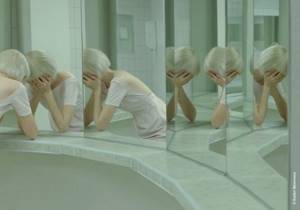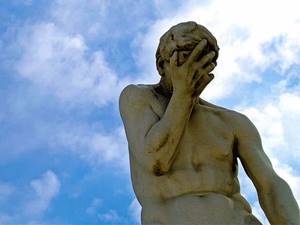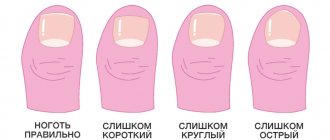Your cheeks are burning, your words are jumbled, your heart is beating faster, your palms are sweating. I want to quickly hide in a secluded place and never come out again! Scientists warn that shame negatively affects self-esteem and can lead to depression. Being ashamed is unpleasant and even painful. Not surprisingly, most articles on this topic refer to shame as a toxic emotion.
But no matter how much we try to get rid of shame on an individual level, in society it is still the norm. Fortunately, recently more and more people are realizing that shaming people for their bodies or sexuality that do not fit into social boundaries is wrong.
Shaming is beginning to be perceived as a negative practice that needs to be gotten rid of. However, the shame still hasn’t gone away. Now we shame each other for saying racist, homophobic or sexist things.
So is shame still sometimes useful, or is it time to prohibit lecturing people no matter what they have “wronged”? Will this help you get rid of your own shame? Or maybe this feeling is so rooted in our psyche that even if we stop shaming others, we ourselves will still continue to feel ashamed?
What is shame?
Although shame is intuitively familiar to us all and, moreover, is found in all cultures, it is difficult to give an unambiguous definition to this feeling. This is explained in different ways.
1. We are bad at sharing emotions that are close to each other, especially if they manifest themselves in similar ways in the body. For example, shame is often confused with embarrassment. They differ in the level of experience: shame is much more painful, intense and lasting.
Shame occurs when important values and moral principles are violated. A person thinks: “I am bad and wrong.”
Embarrassment passes more quickly and is usually associated with a violation of less important social norms. In addition, in Russian we can talk about embarrassment even in a positive situation: for example, we can become embarrassed after hearing a compliment or praise. It's always unpleasant to be ashamed.
2. In different languages, emotions are named and divided differently. In some languages, one feeling can be given several names, and in another, on the contrary, several emotions can be combined into one word.
For example, in Russian we talk about shame without distinguishing between its shades. And in Mandarin Chinese there are four concepts:
- diu lian
- shame due to loss of reputation; - can kui
- the shame that is felt when one fails to achieve the ideal; - xiu kui
- shame due to personal failure; - xiu chi
- shame due to social failure.
Language means help us better or worse describe and understand emotions and form our own emotional culture.
3. In scientific literature, shame is often described in conjunction with guilt. The point is that the contrast between shame and guilt helps to understand these emotions.
We blame ourselves for a specific offense, for example, when we broke our grandmother’s favorite cup. To be ashamed means to be disappointed in one’s personality and qualities: for example, I am ashamed because I am a deadliner (a loser, ugly, I don’t know how to speak beautifully - underline what is necessary).
Of course, my personal qualities may be associated with certain actions (for which I may blame myself!), but it is possible to feel shame without even having done anything. That is why it is more insidious than wine. Feeling guilty, we ask for forgiveness and try to correct the situation as soon as possible, but when we are ashamed, we just want to fall into the ground so that no one else will ever know how bad and wrong we are.
Guilt always concerns the action, while shame always concerns the individual.
Understanding these differences helps you understand whether you are experiencing shame, guilt, or both.
Naming your emotions and being aware of their characteristics is useful, as it helps you better understand yourself and your needs.
The main distinguishing feature of shame
is a feeling of being unworthy, bad and wrong. Because of this, there is a strong desire to quickly hide from the whole world so that no one sees how we do not correspond to the values that are important to us or society.
When you do wrong
Forgot to congratulate a loved one on the holiday
To be honest, each of us sometimes forgot to congratulate a friend on his birthday, his parents on his wedding anniversary, and his other half on the day we met. The stronger half of humanity most often suffers from such forgetfulness, although, for sure, many ladies have found themselves in a similar situation.
It seems that there is nothing wrong with this: you can call the next day, apologize, citing a bunch of things to do. However, you should never justify your forgetfulness with actions.
. You might be surprised to see how touchy people you know can be!
If you try to refer to deeds, the person whom you did not congratulate may decide that your deeds are more important than his joyful event, which you simply had to remember! Usually with such forgetfulness a wall is built
, which arises between old friends who are forced to communicate quite rarely.
How to remember to congratulate a loved one on the holiday?
But there are situations when you deliberately did not want to congratulate someone for the reason that this someone forgot to congratulate you. This happens quite often. But think about it: is the forgetfulness of your loved one or acquaintance worth it to show such petty vindictiveness? However, most often we simply forget about the need to congratulate...
To avoid getting into such an awkward situation, use a few minutes of free time and enter all the important dates
, with which you should congratulate your loved ones, in the organizer of your phone or computer. This will prevent you from feeling guilty and apologizing for your forgetfulness.
Got drunk at a corporate party
Let's be honest - we love to go for a walk. I especially want to relax after a hard day at work. And it would be a sin not to do this if the management itself organizes a corporate holiday, which is designed to unite the team together, to give all employees the opportunity to feel like one big friendly family.
This is, of course, a good thing, but for some of its participants a corporate party can turn from a holiday into a real hell
, after which it is embarrassing not only to appear in front of your colleagues, but even to look at yourself in the mirror. And how many family scandals have resulted from such gatherings!
The reason why people get drunk at corporate events is clear. Sometimes tension in a team can be relieved only with the help of a fair amount of alcohol. And when dancing on the table or hugging the toilet starts (or someone just ends up face-first in the salad), someone from the “support group” will definitely be nearby with their mobile phone camera turned on.
How can you look your colleagues in the eyes without shame after a corporate party?
Finding yourself a YouTube star in such a situation is something few people smile at. What to do to avoid losing face in front of the team?
, and then not be painfully ashamed of a few hours of euphoria? Don't go to corporate events? Not an option.
The first step is to objectively assess your drinking capabilities. If alcohol is not your thing, you should either not drink at all (which not everyone does), or choose one drink and under no circumstances change it throughout the evening.
Never lose sight of your glass or shot glass. Enterprising colleagues, knowing your intolerance to alcohol, may, for example, add vodka to your champagne
, in anticipation of the performance that might follow.
Talk to a colleague who can be trusted with your honor and conscience. Let him or her keep an eye on you and, if you have had too much, try to send you home in a taxi as quickly as possible, giving you the opportunity to avoid continuing the banquet. The main thing is that the colleague is reliable, otherwise soon the two of you will be filmed dancing on the table.
Why do you feel unworthy?
By being ashamed, we feel wrong, worse than other people and unworthy of their company. Why is that? It turns out that shame is a social emotion.
Social emotions are closely related to the feelings and actions of other people - their approval or condemnation. In addition to shame, these include guilt, jealousy, envy, pride, and sympathy.
With basic emotions like joy or anger, only awareness of one's own self matters. Social emotions are associated with the fact that we strive to recognize ourselves as part of a group or an entire society and understand that there are other “selves” who may experience different feelings towards us.
Therefore, many researchers emphasize that the view of the Other plays an important role in the formation of shame—the ability to look at yourself from the outside, to find out what other people think about you.
“Shame in its primary structure is shame in front of someone. I just made an awkward or vulgar gesture, this gesture stuck to me, I don’t judge it, I don’t blame it, I just experience it, I realize it in the form of a for-itself. But suddenly I raise my head: someone was here and saw me. I immediately realize the vulgarity of my gesture, and I am ashamed...
So, the other is the inevitable intermediary connecting me with myself; I am ashamed of how I appear to others.”
Jean-Paul Sartre "Being and Nothingness"
And although here Sartre is talking about a real view from the outside (someone really saw my vulgar gesture), it is enough for us to imagine what would happen if someone saw it.
We most often get our very first experience of shame in early childhood, when parents or other significant adults pointed out to us from the outside that something is shameful. As we get older, we need less and less the actual presence of other people to experience shame. We form in our imagination an image of the Other who will evaluate all our actions. Often this assessment occurs automatically and unconsciously.
The audience, real or imagined, is an important component of shame.
The assessment of other people determines whether we feel that we are doing something unworthy and bad. Having experienced shame, we want to hide from this particular audience, because they saw our failure.
Why do we feel shame?
Feeling of shame
Conscience plays an important role. For some, this inner feeling is more acute, for others, less so. She is already beginning to “gnaw” some for little lies, and for others only after realizing the truly serious consequences of her act. The level of “guardianship” of conscience depends on upbringing and on the conditions in which we spent our childhood. It is clear that for those who have often been told that they are a bad boy (girl) because they didn’t eat porridge, didn’t put away toys, got a C, broke something, then these people’s conscience will trigger literally everything, everywhere, everywhere and constantly. At the same time, feelings of shame and guilt will automatically be triggered.
That is, shame is formed by society?
Once you learn that shame is a social emotion, you can get caught up in debates about society, losing sight of the fact that it is also a reaction of the body. From a physiological point of view, shame manifests itself in the same way no matter what culture we grew up in. Why did evolution reward us with reddening cheeks and the desire to fall through the ground?
Dutch primatologist Frans de Waal in his book “The Origins of Morality. Searching for Humanity in Primates notes that a similar reaction can be observed in chimpanzees. Guilty monkeys cower, crawl in the dust in front of their leader, crouch to the ground and look up to demonstrate their submission. The human body shows shame even more clearly: we blush uncontrollably.
The common physiological manifestation of shame between humans and chimpanzees shows that it is an adaptation developed during the process of evolution, writes de Waal. This is a social signal that tells others: we know very well that we did wrong, and now we are striving with all our might to improve. Thus, shame shows that we have simply slipped up, are not a threat to the community, and want to interact with others.
“Wouldn’t it be better if the blood, at the most inopportune moments, did not involuntarily rush to the cheeks and neck, where the change in skin color is visible from afar, like a burning lantern? For a born manipulator, such a signal has no positive meaning. The only meaning I can think of for such a blush is that a flushed face communicates to other people that you know how your actions affect them. This promotes trust."
Frans de Waal “The Origins of Morality. In search of humanity in primates"
From an evolutionary point of view, shame, with all its unpleasant physiological reactions, is necessary for us to survive
. Shame shows that we understand how our actions affect others and are willing to engage with others and make amends when we do wrong.
Shame and suppression of aggression, directing it in the wrong direction
It is very difficult for a person to say what does not suit him if he feels shame, timidity, or humiliation. Of course, he is aware that it brings him discomfort. However, he cannot immediately clarify this in contact with another - the “I’m ashamed” sounding inside prevents him from finding a form of expressing his dissatisfaction and anger. And if a person feels worse than another, then it is especially difficult for him to feel his right to express dissatisfaction in at least some form.
When such discontent accumulates, it gives rise to aggression in a person. Aggression is the energy to restore broken boundaries, to overcome obstacles on the way to one’s needs. This energy is not directed in the right direction.
Perhaps a person will come home and at home will express everything that he thinks about what he is dissatisfied with. He can tell his wife or husband about everything instead of telling his boss or someone else. The person will be angry, tell how offended he is, how someone is wrong.
But the problem with this way of expressing aggression is that it is directed in a completely different direction. The boss will never know what the person doesn’t like. A dissatisfied person may drain his accumulated energy, but nothing will change significantly in his life for the better. Aggression will accumulate and the ways of expressing it will not change.
A person can greatly ruin relationships with family and loved ones by discharging aggression that was not intended for them. Close people do not always withstand this attitude, discord and scandals begin in the family, which can end in separation. In this case, the person will again receive confirmation that he is bad and unworthy, and again the unbearable “I’m ashamed” will come to him...
Aggression can also be expressed in the form of a sudden affective outburst. Even a very modest person can explode like this. And when a person gets into a strong affect, it is very difficult for him to choose the correct form of expression and control what he says. As a result, the person realizes that he said and/or did something unnecessary, and his feeling of “I’m ashamed” grows exponentially.
His interlocutor may also pay attention only to the form, be offended, and be indignant. Important content that could change the relationship will be devalued and destroyed by such an aggressive form.
Shameful people direct a huge part of their aggression towards themselves. For example, they may stumble, fall, or cut themselves, “accidentally” receiving minor injuries. Sometimes auto-aggression is expressed in the form of serious illnesses. For example, after unpleasant conversations or events in which they have to strongly restrain themselves, such people often have a headache. Over time, more severe symptoms and illnesses may develop.
So shame is useful?
Yes and no. From an evolutionary perspective, shame and any other social emotion are useful for maintaining a complex social structure. Humanity has been able to achieve so much because we, as a species, are highly cooperative and able to work together. But the ability to feel shame is one thing, and quite another thing is in what situations we experience it. Culture plays an important role here.
The classic view of culture through the lens of shame is represented by the work of American anthropologist Ruth Benedict, who in her book The Chrysanthemum and the Sword: Patterns of Japanese Culture (1946) suggested that America is a culture of guilt and Japan is a culture of shame.
An American who has committed a bad deed will feel guilt, which will be helped by repentance and actions that make amends for what he has done. For the Japanese, repentance will not make it any easier: instead of guilt, he will feel shame for himself (after all, he made a mistake) and decide to isolate himself from society.
Ruth Benedict's theory became popular: soon all cultures were divided into cultures of shame and guilt (sometimes fear is added here). In general, Western society is considered a guilt culture. Some researchers are even sure that this explains why the West so dislikes shame and fights it with all its might: guilt is simply more familiar and understandable to us, we know what to do with it and how to stop experiencing it.

However, we should not forget that Benedict wrote her book after World War II, and a lot has changed since then. In addition, her theory has been criticized for jumping to conclusions. And the statement that in Western culture guilt is more important than shame looks dubious.
Christianity, in which shame plays a key role, has had a huge influence on Western countries: after eating from the tree of knowledge, Adam and Eve experienced exactly this feeling.
In addition, modern psychotherapists write that an epidemic of shame is raging in the West. Shame is one of the main emotions experienced by narcissists and people with narcissistic injury (that is, those who have been in relationships with narcissists for a long time). The reason is that such people place excessive demands on themselves and others. Often they cannot live up to them, and then they scold themselves (or others) for it.
This shame is unconscious; it not only appears from time to time in the lives of such people, but is its constant background. A person always falls short of the (impossible) ideal and constantly feels his “unworthiness.” Of course, such shame is toxic and destroys personality.
You can read more about the connection between narcissistic injury and shame in Anastasia Dolganova’s book “The World of the Narcissistic Victim. Relationships in the context of modern neurosis.”
Modern anthropologists also remind us that in every culture there is both shame and guilt, and Ruth Benedict’s classification only helps to understand which emotion has a stronger influence on a particular society.
How shame works
Shame is the fear of not being accepted into a certain conventional group. Or be excluded from this group. For example, I don’t want to share a cookie, they say to me: “Ugh, greedy! No one will be friends with a greedy person." What is this? “Expulsion” of me from the conditional group “non-greedy_people_with_whom_they_are_friends.” I don't want to be expelled from there. It is important for me to be in a group of non-greedy people. And as soon as I hear “greedy,” I get scared that I’m about to fall out of the group of non-greedy ones. But I can’t, there are a lot of bonuses in the group (that’s how my brain feels), but outside of it there’s no telling what. And it's scary. And it causes tension. And I want to stop this quickly. This all feels like shame.
Subscribe to our INSTAGRAM account!
More examples: It’s a shame not to lend money to a friend - it’s scary to “fly out” of the “good friends” group; It’s a shame not to invite your mother on vacation - it’s scary not to get into the “good_son/daughter” group; It’s a shame to ask for help - they won’t accept “independent” people into the group; It’s a shame not to have a smartphone—they’ll exclude you from the “successful” group, etc.
Where does this fear come from? From a very, very ancient memory. Our psyche stores information about times when being kicked out of the tribe literally meant death. The ancient world was such that it was almost impossible to survive alone, and the brain chose and saved the strategy of staying in the tribe at any cost and saving it as a survival strategy. And he still keeps it. Only now, instead of a real tribe, there are conditional groups.
The brain does not “see” the difference between the imagined reality and the real one. And he reacts to the danger of not being included in a conditional group as if it were a real danger. And takes action - includes the “necessary” behavior. And you do what you don’t want, then you get angry with yourself and others, you get sad, you become despondent, and it takes a lot of internal strength to recover.

How does Western culture teach us to be ashamed?
The fight against shame is not a new invention: already in Antiquity, philosophers disliked this feeling. Aristotle wrote:
“It is not proper to talk about shame as a kind of virtue, because it resembles passion more than a disposition [of the soul]...
This passion is not appropriate for every age, but [only] for the young. We believe that at a certain age one should be bashful, because, living according to passion, young people commit many offenses, and bashfulness prevents them. And we praise shy people among young people, but perhaps no one will praise an older person for shyness...
Shyness, since it arose in connection with bad deeds, is alien to a decent person...
The one who, having committed one of the shameful acts, is embarrassed and thinks that thereby he is a decent person behaves absurdly. Shame, after all, comes from arbitrary actions, but a decent person will never do anything bad of his own free will.”
Aristotle "Nicomachean Ethics"
Thanks to Aristotle, many philosophers viewed shame as an exclusively moral emotion and sometimes even emphasized that it was a kind of moral compass. If you are ashamed, it means you did something wrong.
However, these days, not everyone agrees with this; many scientists are sure that we experience shame in other cases. For example, American philosopher J. David Velleman argues that shame occurs when we cross the line between public and private.
Velleman speculates: What will happen if one day we wake up in a world where there is no shame at all? From the looks of it, we'll end up... in a biblical paradise (maybe that's not such a bad thing).
Velleman examines the story of Adam and Eve, which has certainly influenced the way Western culture views shame, and comes to an interesting conclusion. Adam and Eve experienced shame for the first time not because of a violation of moral standards, but because of the awareness of their nakedness. Thus, shame in Western culture has become closely associated with the body and sexuality. Velleman doesn't like it:
“A well-known version suggests that the knowledge that Adam and Eve acquired was knowledge about sex. What they suddenly realized, according to this interpretation, was the sexuality of the whole situation, which made them feel both lust and shame.
This version is strange because it suggests that God, when creating Adam and Eve, did not want them to use their genitals. But why then did he endow them with them? I do not deny that the knowledge that Adam and Eve acquired was to some extent related to sex, but there is something more hidden behind it.”
J. David Velleman "The Origin of Shame"
According to Velleman, “more” is knowledge about the general and the particular. Having eaten the fruit from the tree of knowledge, Adam and Eve were ashamed not so much of sexuality as of the fact that their privacy was violated: what they would like to hide suddenly became public.
What is the difference between conscience and shame: in your own words

In order for a person to feel ashamed, he always needs an “observer” who will notice his action and criticize him. Shame arises from social disapproval. How is conscience different from shame? Here is the answer in your own words:
- Conscience is an internal quality of a person. In this case, he reproaches himself for something unacceptable.
- A person does not need any “eyewitnesses” to experience inner awkwardness.
- After all, remorse arises as a result of a person having moral principles and norms that he, for some reason, violates.
- It turns out that shame is a collective phenomenon, and conscience is an individual one.
Remember: Shame is the main advisory headquarters of your complexes. The more you listen to it, the faster the feeling consumes you, locking you in a bubble of your own insecurity.
Fight it, you are stronger than this. Get rid of such thoughts that eat your sanity like worms. Good luck!
When does shame become toxic?
Valuing the personal and the public, not violating other people’s boundaries and knowing that no one will violate yours is a great idea. But why then does shame so often negatively affect us? It's all about the norms that fix the line between the private and the public.
What to make public and what is better to hide, each society decides for itself. Sometimes our subjective view of the norms of private and public does not coincide with what is accepted in society, and sometimes these norms are simply outdated or do not suit us.
What exactly makes us ashamed: society's norms or our own principles?
There are two competing theories: autonomous and heteronormative shame.
- Autonomous shame theory states that we only feel ashamed of something when we act contrary to our values and principles. For example, it’s important for me to deliver my work on time, but I don’t have time and I’m ashamed of myself for it. Society may approve or criticize my desire to not have a deadline, but I feel burning shame because I violated what is important to me personally.
- Heteronormative shame theory states that I feel shame primarily when I violate norms that are important to the society in which I live. If society cultivates the image of a person who is on time always and everywhere, then I will shame myself for violating all deadlines. But if society encourages self-care and an indulgent attitude towards one's shortcomings, then I would rather be ashamed of taking on too much and not getting enough rest.
Many arguments can be made in favor of each of the theories. But to understand why shame can be toxic, it is worth turning to the object of shame itself and asking: why am I ashamed of this particular thing? What are the rules behind this? Are they important to me personally or is this what most people are motivated by?
Sometimes we feel embarrassed about what really matters to us. Then shame helps us see what exactly we are doing wrong, so that we don’t do it again in the future and correct ourselves.
But sometimes we are ashamed of something with which we ourselves do not agree. What to do then? Philosophers and psychotherapists advise questioning these norms, recognizing their inadequacy and calling on healthy pride to help.
Pride in yourself and your actions is the opposite emotion of shame. She helps to change not only herself, but also society. If half a century ago people were ashamed of the fact that they belonged to LGBTQ+ and hid it in every possible way, then thanks to gay prides (pride in English is translated as “pride”) and the fight for equality, homophobes are now more likely to be shamed.
When we examine our own shame and the shame that is promoted by society, we better understand ourselves and our culture. If social norms do not satisfy you, doubt helps you change them - and stop being ashamed of yourself.
It is important to think and talk about shame.
We need to not only notice it, but also check why we shame ourselves and others. And then, perhaps, shame will become our friend: it will help us cooperate better, respect our own and others’ boundaries, or tell us how to change social norms.
Depression
According to a number of researchers, depression can be considered the most radical way to protect the individual from shame.
If a person is haunted by acute experiences of the state of “I’m ashamed,” if he fails to extract useful experience from his experiences, if he does not master any of the methods of self-support, then such a person experiences fear, guilt, sadness, and self-directed hostility. Such a person is very susceptible to depression.
In depression, as in shame, a person perceives his Self as flawed, inadequate, worthless, pathetic in all respects. A person sees the roots of his inferiority in his personality. This always leads to self-blame. Depression, like shame, prevents a person from finding an explanation or justification for his shortcomings, support and encouragement for himself in his difficulties.
Shame destroys the human personality so much. In the next article we will talk about how to cope with the feeling of shame and why the emotion of shame exists at all: “Is it possible to completely stop being ashamed?”
In the fourth part we will talk about how to get rid of shame.
And the fifth is about how to stop being ashamed.
In the meantime, if you have questions on this topic, you can schedule a consultation with me.
Form for an appointment with psychologist Lola Makarova:
If you have any questions for a psychologist regarding the article:
“I am ashamed: how can we recognize shame. Part 2"
You can ask them online to our psychologist on Skype:
If for some reason you were unable to ask a question to a psychologist online, then leave your message here (as soon as the first free psychologist-consultant appears on the line, you will be immediately contacted at the specified e-mail), or go to the psychological forum.










